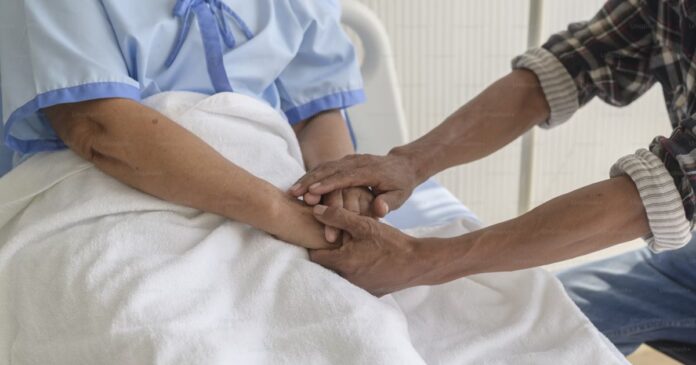A couple of trials in Australia examining whether cannabis can improve quality of life in palliative care patients are still looking for participants.
The second stage of a trial in New South Wales is investigating whether the cannabinoid THC can enhance the quality of life for adults with advanced cancer. Led by UNSW and Professor Meera Agar in collaboration with other researchers, the trial has a special focus on improving appetite and appetite-related symptoms.
“Appetite is particularly important in end-of-life situations as food is a central part of any social gathering,” states the Centre for Medicinal Cannabis Research and Innovation
Stage 1 of the trial, now complete, aimed to enrol up to 30 participants and involved cannabis flower bud used in a vaporiser. Patients were administered approximately 13.5% delta-9-tetrahydrocannabinol (THC)) one hour before meals three times a day; over a period of seven days. Multiple blood samples were taken up to four hours following each morning dose to determine blood THC concentration. Participants were also asked to complete questionnaires and a daily food record to monitor effects on appetite, mood and other aspects.
The findings from that stage are still being finalised for publication.
The second stage of the trial involves an oral tablet containing 4.5 milligrams of THC being initially administered before dinner and ramped up to three times a day before meals, with its effects compared to that of a placebo in what is a double-blind randomised clinical trial.
Occurring across multiple sites across metropolitan and regional New South Wales, this stage may enrol up to 250 participants.
There are fact sheets providing further information – one for patients and another for health professionals.
Another palliative care study involving cannabis is also occurring across the border in Queensland. Mater Research is conducting a trial involving the use of medicinal cannabis to relieve symptoms of advanced cancer in palliative care patients; such as pain, nausea, shortness of breath, anxiety and depression. The cannabis used in this trial will be CBD dominant, with very small amounts of THC. Half of the patients participating will receive the cannabis product and the other half a placebo.
At this point, the trial is accepting participants until November 2025 and further information can be found here.


